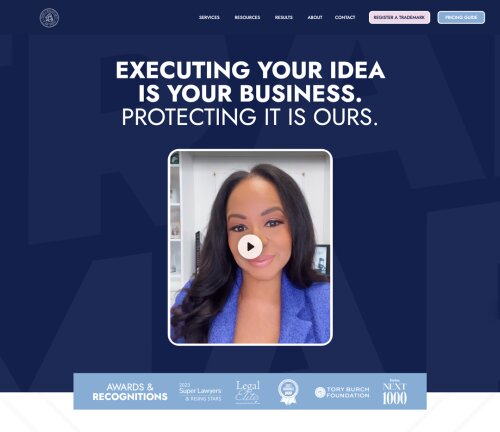Best Communications & Media Law Lawyers in Charlotte
Share your needs with us, get contacted by law firms.
Free. Takes 2 min.
List of the best lawyers in Charlotte, United States
About Communications & Media Law in Charlotte, United States:
Communications & Media Law in Charlotte, United States pertains to the legal regulations surrounding the freedom of speech, expression, and media content. These laws govern issues such as defamation, privacy rights, intellectual property, and the regulation of media outlets.
Why You May Need a Lawyer:
You may need a lawyer specializing in Communications & Media Law in Charlotte, United States if you are facing legal issues related to copyright infringement, privacy violations, censorship, or defamation claims. Additionally, if you are a media outlet or individual facing a lawsuit or legal dispute, seeking legal counsel is essential to protect your rights.
Local Laws Overview:
In Charlotte, United States, Communications & Media Law is governed by federal laws such as the Communications Act of 1934, the Digital Millennium Copyright Act, and the First Amendment of the U.S. Constitution. Additionally, North Carolina state laws may also impact matters related to media and communication.
Frequently Asked Questions:
1. What is defamation?
Defamation is when someone makes false statements about another person or entity that harm their reputation. It can be spoken (slander) or written (libel).
2. How can I protect my intellectual property as a content creator?
You can protect your intellectual property by copyrighting your work, registering trademarks, or entering into licensing agreements.
3. Can I be sued for libel or slander for expressing my opinion?
If your opinion is based on false facts and harms someone's reputation, you could be at risk of a defamation lawsuit.
4. What are the main regulations concerning free speech in Charlotte?
The First Amendment generally protects free speech, but there are limitations, such as incitement to violence or obscenity.
5. Can I use someone else's copyrighted material in my content?
You should obtain permission or ensure that your use falls under fair use exceptions to avoid copyright infringement.
6. How can I ensure that my privacy rights are protected online?
Be cautious with sharing personal information online, use secure privacy settings, and be aware of data privacy laws.
7. What should I do if my work has been plagiarized?
Contact a lawyer specializing in intellectual property to assess your options for taking legal action against the plagiarizer.
8. Can I film or record someone without their consent in Charlotte?
North Carolina is a one-party consent state, meaning you can legally record a conversation if you are part of it and consent to the recording.
9. What are the consequences of violating media regulations in Charlotte?
Violating media regulations can result in fines, lawsuits, or other legal penalties. It's important to comply with relevant laws and regulations.
10. How can a lawyer help me with a Communications & Media Law issue?
A lawyer specializing in Communications & Media Law can provide legal advice, represent you in court, and help protect your rights in legal disputes related to media and communication.
Additional Resources:
For additional resources related to Communications & Media Law in Charlotte, United States, consider contacting the North Carolina Bar Association or the Charlotte-Mecklenburg County Bar Association for referrals to experienced lawyers in this field.
Next Steps:
If you require legal assistance in Communications & Media Law in Charlotte, United States, it is recommended to seek out a lawyer with expertise in this area. Schedule a consultation to discuss your specific situation and receive guidance on how to proceed with your case.
Lawzana helps you find the best lawyers and law firms in Charlotte through a curated and pre-screened list of qualified legal professionals. Our platform offers rankings and detailed profiles of attorneys and law firms, allowing you to compare based on practice areas, including Communications & Media Law, experience, and client feedback.
Each profile includes a description of the firm's areas of practice, client reviews, team members and partners, year of establishment, spoken languages, office locations, contact information, social media presence, and any published articles or resources. Most firms on our platform speak English and are experienced in both local and international legal matters.
Get a quote from top-rated law firms in Charlotte, United States — quickly, securely, and without unnecessary hassle.
Disclaimer:
The information provided on this page is for general informational purposes only and does not constitute legal advice. While we strive to ensure the accuracy and relevance of the content, legal information may change over time, and interpretations of the law can vary. You should always consult with a qualified legal professional for advice specific to your situation.
We disclaim all liability for actions taken or not taken based on the content of this page. If you believe any information is incorrect or outdated, please contact us, and we will review and update it where appropriate.








